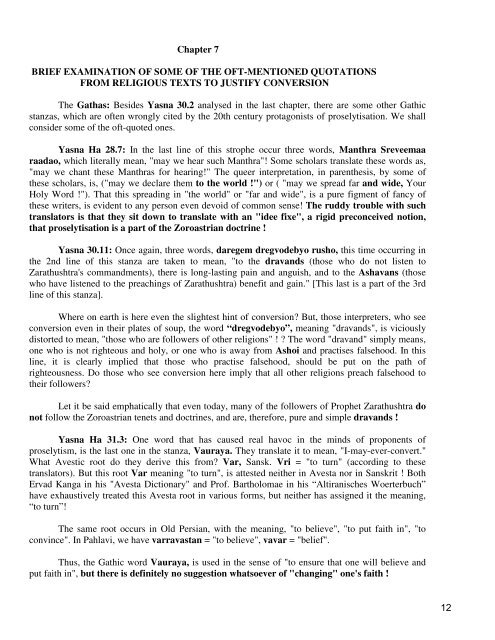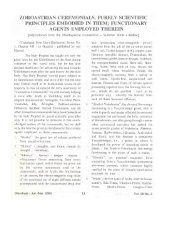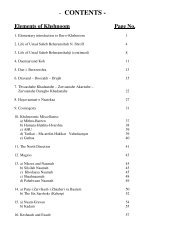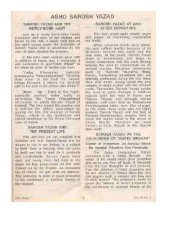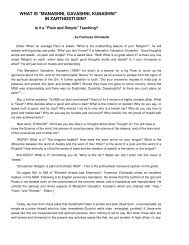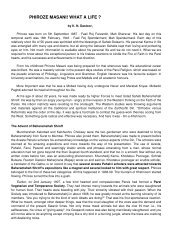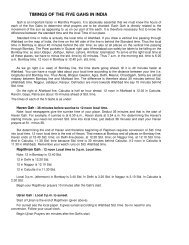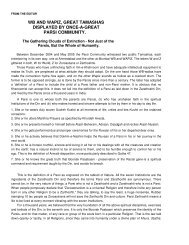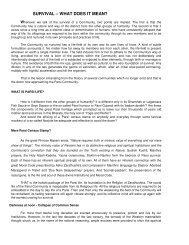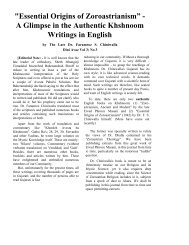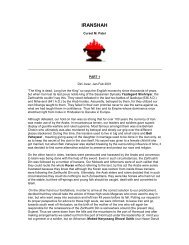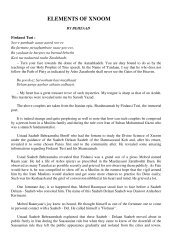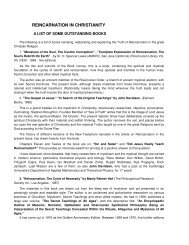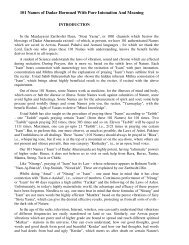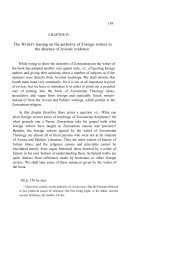Acceptance – Never Ever. - Traditional Zoroastrianism: Tenets of the ...
Acceptance – Never Ever. - Traditional Zoroastrianism: Tenets of the ...
Acceptance – Never Ever. - Traditional Zoroastrianism: Tenets of the ...
Create successful ePaper yourself
Turn your PDF publications into a flip-book with our unique Google optimized e-Paper software.
Chapter 7<br />
BRIEF EXAMINATION OF SOME OF THE OFT-MENTIONED QUOTATIONS<br />
FROM RELIGIOUS TEXTS TO JUSTIFY CONVERSION<br />
The Gathas: Besides Yasna 30.2 analysed in <strong>the</strong> last chapter, <strong>the</strong>re are some o<strong>the</strong>r Gathic<br />
stanzas, which are <strong>of</strong>ten wrongly cited by <strong>the</strong> 20th century protagonists <strong>of</strong> proselytisation. We shall<br />
consider some <strong>of</strong> <strong>the</strong> <strong>of</strong>t-quoted ones.<br />
Yasna Ha 28.7: In <strong>the</strong> last line <strong>of</strong> this strophe occur three words, Manthra Sreveemaa<br />
raadao, which literally mean, "may we hear such Manthra"! Some scholars translate <strong>the</strong>se words as,<br />
"may we chant <strong>the</strong>se Manthras for hearing!" The queer interpretation, in paren<strong>the</strong>sis, by some <strong>of</strong><br />
<strong>the</strong>se scholars, is, ("may we declare <strong>the</strong>m to <strong>the</strong> world !") or ( "may we spread far and wide, Your<br />
Holy Word !"). That this spreading in "<strong>the</strong> world" or "far and wide", is a pure figment <strong>of</strong> fancy <strong>of</strong><br />
<strong>the</strong>se writers, is evident to any person even devoid <strong>of</strong> common sense! The ruddy trouble with such<br />
translators is that <strong>the</strong>y sit down to translate with an "idee fixe", a rigid preconceived notion,<br />
that proselytisation is a part <strong>of</strong> <strong>the</strong> Zoroastrian doctrine !<br />
Yasna 30.11: Once again, three words, daregem dregvodebyo rusho, this time occurring in<br />
<strong>the</strong> 2nd line <strong>of</strong> this stanza are taken to mean, "to <strong>the</strong> dravands (those who do not listen to<br />
Zarathushtra's commandments), <strong>the</strong>re is long-lasting pain and anguish, and to <strong>the</strong> Ashavans (those<br />
who have listened to <strong>the</strong> preachings <strong>of</strong> Zarathushtra) benefit and gain." [This last is a part <strong>of</strong> <strong>the</strong> 3rd<br />
line <strong>of</strong> this stanza].<br />
Where on earth is here even <strong>the</strong> slightest hint <strong>of</strong> conversion? But, those interpreters, who see<br />
conversion even in <strong>the</strong>ir plates <strong>of</strong> soup, <strong>the</strong> word “dregvodebyo”, meaning "dravands", is viciously<br />
distorted to mean, "those who are followers <strong>of</strong> o<strong>the</strong>r religions" ! ? The word "dravand" simply means,<br />
one who is not righteous and holy, or one who is away from Ashoi and practises falsehood. In this<br />
line, it is clearly implied that those who practise falsehood, should be put on <strong>the</strong> path <strong>of</strong><br />
righteousness. Do those who see conversion here imply that all o<strong>the</strong>r religions preach falsehood to<br />
<strong>the</strong>ir followers?<br />
Let it be said emphatically that even today, many <strong>of</strong> <strong>the</strong> followers <strong>of</strong> Prophet Zarathushtra do<br />
not follow <strong>the</strong> Zoroastrian tenets and doctrines, and are, <strong>the</strong>refore, pure and simple dravands !<br />
Yasna Ha 31.3: One word that has caused real havoc in <strong>the</strong> minds <strong>of</strong> proponents <strong>of</strong><br />
proselytism, is <strong>the</strong> last one in <strong>the</strong> stanza, Vauraya. They translate it to mean, "I-may-ever-convert."<br />
What Avestic root do <strong>the</strong>y derive this from? Var, Sansk. Vri = "to turn" (according to <strong>the</strong>se<br />
translators). But this root Var meaning "to turn", is attested nei<strong>the</strong>r in Avesta nor in Sanskrit ! Both<br />
Ervad Kanga in his "Avesta Dictionary" and Pr<strong>of</strong>. Bartholomae in his “Altiranisches Woerterbuch”<br />
have exhaustively treated this Avesta root in various forms, but nei<strong>the</strong>r has assigned it <strong>the</strong> meaning,<br />
“to turn”!<br />
The same root occurs in Old Persian, with <strong>the</strong> meaning, "to believe", "to put faith in", "to<br />
convince". In Pahlavi, we have varravastan = "to believe", vavar = "belief".<br />
Thus, <strong>the</strong> Gathic word Vauraya, is used in <strong>the</strong> sense <strong>of</strong> "to ensure that one will believe and<br />
put faith in", but <strong>the</strong>re is definitely no suggestion whatsoever <strong>of</strong> "changing" one's faith !<br />
12


